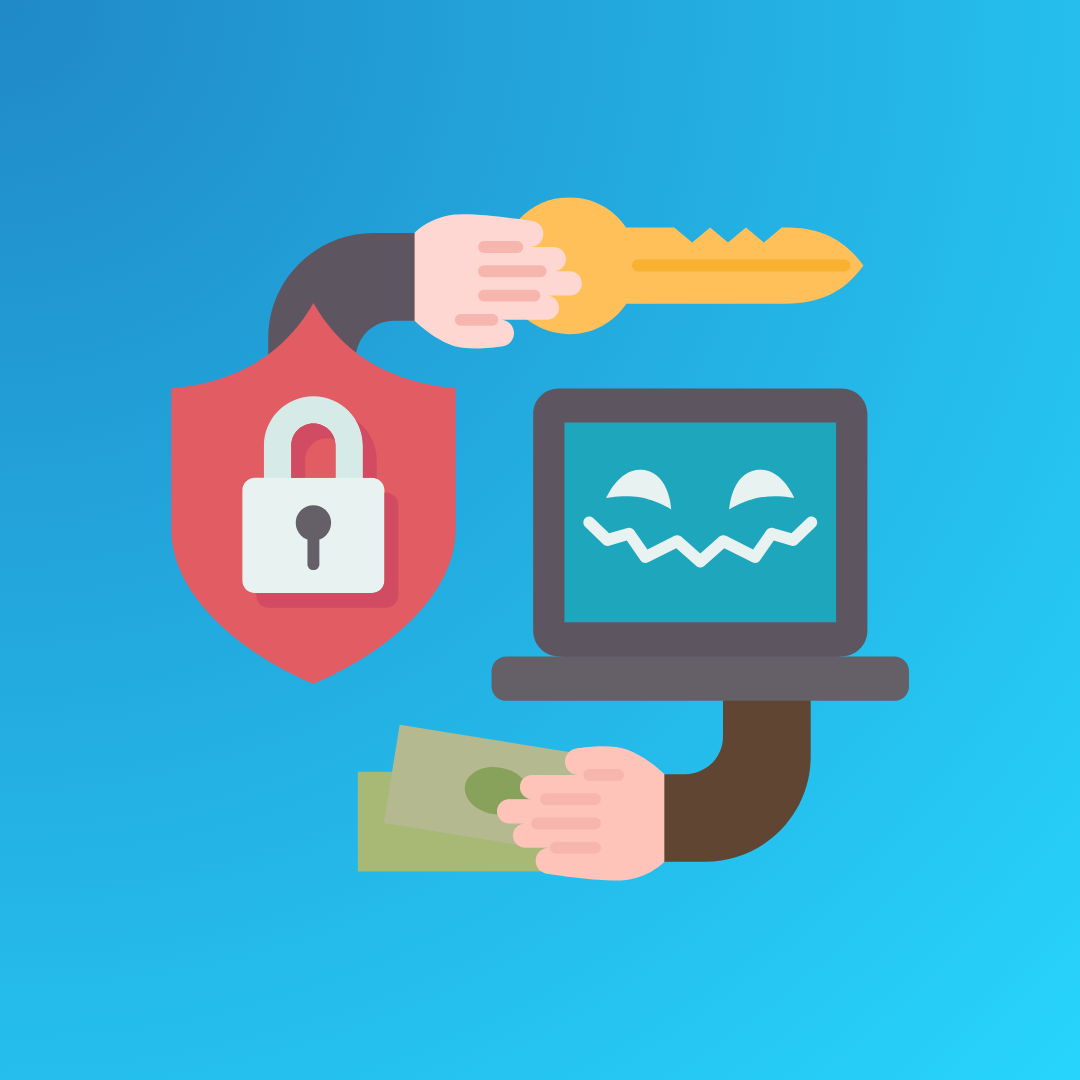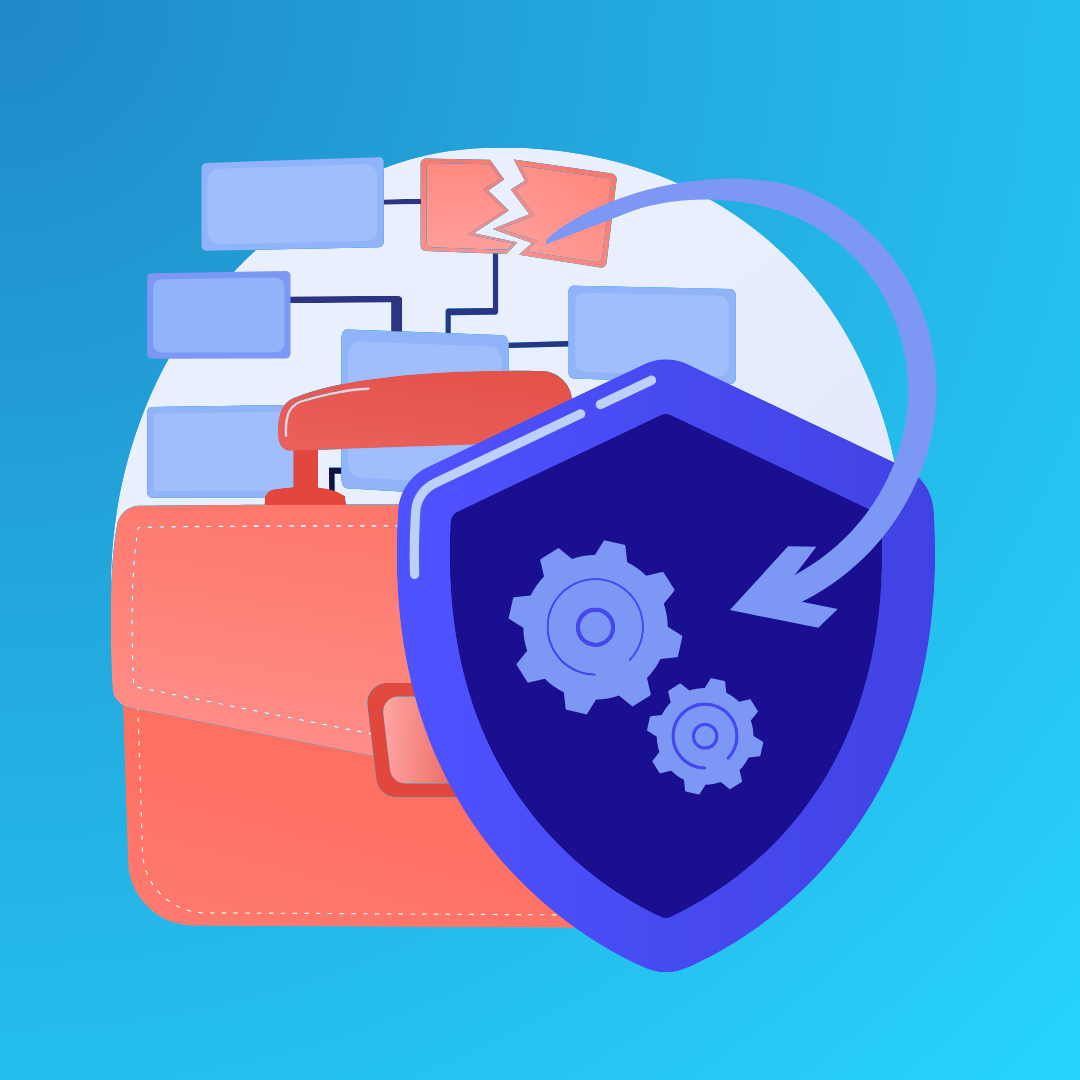The Proactive Approach in Cybersecurity

In today’s fast-paced digital world, businesses of all sizes are embracing technology to improve operations, connect with customers, and drive growth. From cloud-based software and digital payments to remote work and online communication, digital transformation has become essential to staying competitive. However, with these advancements comes a growing and often underestimated risk: cybersecurity threats.
As digitalization accelerates, cybersecurity has emerged as a critical concern across industries. No longer confined to large corporations or financial institutions, cybercriminals are increasingly targeting small to mid-sized businesses, many of which lack the robust defenses and resources of their larger counterparts. These organizations are often seen as “soft targets”. Vulnerable entry points in a digital ecosystem that threat actors are eager to exploit.
The tactics of cybercriminals are becoming more sophisticated by the day. From phishing attacks and ransomware to credential theft and social engineering, today’s threats are not only more complex but also more persistent. These attacks can compromise sensitive data, disrupt operations, damage reputations, and result in significant financial losses. In some cases, a single cyber incident can be enough to shut down a business entirely.
What makes this landscape even more dangerous is that many businesses are underprepared. Some may rely on outdated security tools, while others assume they’re too small to be a target. Others may believe cybersecurity is solely the IT department’s responsibility. In reality, cybersecurity is a company-wide issue, requiring attention from leadership down to frontline employees.
Proactive measures are not just recommended, they’re essential. Businesses must understand that cybersecurity is not a one-time effort, but an ongoing commitment. This includes performing regular risk assessments, implementing strong access controls, educating employees on cyber hygiene, backing up data securely, and staying current with software patches and updates. In today’s environment, waiting until an attack occurs is no longer an option.
Additionally, partnering with cybersecurity experts or managed IT service providers can provide access to advanced technologies, 24/7 monitoring, and the strategic guidance needed to stay ahead of evolving threats. These professionals can help businesses design and implement security frameworks that are tailored to their operations, industry regulations, and risk tolerance.
It’s also important to recognize that cybersecurity isn’t just about protection, it’s about preserving trust. Customers, clients, and partners expect their data to be handled responsibly. A single data breach can lead to lasting damage not only in terms of cost but also in credibility. Proactively securing your digital assets is a direct investment in your brand’s integrity and longevity.
In a world where cyberattacks are no longer a matter of if, but when, businesses must be ready. Taking action today can mean the difference between quickly containing a threat or suffering devastating consequences. As the threat landscape continues to evolve, so too must your strategy.
Cybersecurity is no longer optional, it’s mission-critical. Now is the time for every business, no matter its size or industry, to take a stand against cybercrime and make security a core part of its digital foundation.
The Increasing Danger of Cyber Attacks on Businesses
In today’s digitally connected world, businesses of all sizes are becoming prime targets for cybercriminals. These attackers often view businesses, particularly small and mid-sized ones, as easy prey, largely due to insufficient or outdated cybersecurity measures. The risk is especially pronounced in regions like Maine, where many local businesses are rapidly adopting digital tools without always having the infrastructure in place to secure them.
Cyber threats are growing more sophisticated and relentless. Common attack methods include ransomware, which locks down systems until a payment is made; phishing, where employees are tricked into revealing sensitive login credentials; and data breaches, which expose confidential customer or business information. Each of these threats can result in substantial losses. May it be financial, operational, and reputational.
The financial impact of a cyberattack can be devastating. Businesses may face the high costs of system restoration, legal liabilities, regulatory fines, and lost productivity. In some cases, the business may be forced to shut down temporarily or permanently while systems are rebuilt and damage is assessed.
Equally damaging is the loss of trust that follows a breach. If customer data is compromised, the impact goes beyond dollars, it affects a brand’s reputation. Clients and partners may choose to take their business elsewhere, fearful of further exposure. Rebuilding that trust can take years and often involves far more than just technical fixes.
Understanding the scope and nature of these threats is the first step in developing a robust cybersecurity strategy. Businesses must move from a reactive stance to a proactive approach. Identifying vulnerabilities, educating employees, implementing protective measures, and engaging cybersecurity experts when necessary.
In an age where cyber threats are no longer a possibility but a guarantee, Maine businesses and all businesses must take cybersecurity seriously to safeguard their future.

Ransomware Attack: A Growing Threat to Business Continuity
Among the most dangerous and disruptive forms of cybercrime, ransomware attacks continue to rise in frequency and sophistication, especially targeting small and mid-sized businesses. A ransomware attack involves malicious software (malware) that infiltrates a network, encrypts the business’s data, and demands a ransom payment in exchange for the decryption key. Until the ransom is paid or the system is otherwise restored, the affected data remains inaccessible, effectively bringing operations to a standstill.
For businesses, particularly those in regions like Maine, the consequences of a ransomware attack can be devastating. These attacks don’t just lock files, they shut down entire systems. Dental practices, retail stores, law firms, manufacturers, and other organizations often find themselves unable to access schedules, payment systems, patient records, or inventory databases for days or even weeks. During this time, productivity plummets, revenue is lost, and customer service is disrupted.
What makes ransomware even more insidious is that paying the ransom does not guarantee recovery. Cybercriminals may not provide the decryption key, or they may offer a flawed version that corrupts data. Worse still, businesses that pay up often become repeat targets, as attackers see them as more likely to comply again in the future.
Several businesses in Maine have already experienced the real-world consequences of ransomware. In some cases, they’ve been forced to pay thousands or even millions of dollars to regain access to their own data. Others have chosen not to pay, instead undergoing lengthy and expensive recovery efforts that stretch IT resources thin and require professional cybersecurity intervention.
The key to minimizing ransomware risk lies in prevention and preparation. Regular data backups, employee training, email security, and advanced endpoint protection are all critical components of a comprehensive defense. Partnering with a trusted managed IT service provider, like Ekim IT Solutions, can also ensure that systems are monitored continuously and that vulnerabilities are addressed before attackers can exploit them.
In an environment where ransomware attacks are becoming more targeted and financially motivated, businesses must view cybersecurity not as an expense, but as an essential investment in continuity, trust, and survival.
Phishing Scams: A Silent Threat to Business Security
Phishing scams are among the most common and dangerous forms of cyberattacks targeting businesses today. These deceptive attacks use social engineering tactics to trick individuals into revealing sensitive information, such as passwords, financial data, or system access credentials. What makes phishing so effective and dangerous is that it often appears legitimate, catching even cautious employees off guard.
In a typical phishing scam, cybercriminals send emails or messages that mimic trusted sources such as banks, vendors, customers, or even internal executives. These messages often contain urgent requests like verifying an account, resetting a password, or confirming a financial transaction. The goal is to prompt the recipient to click on a malicious link or download an infected attachment. Once this happens, malware can be installed, or credentials can be harvested and used to infiltrate company systems.
Even one successful phishing email can compromise an entire business network. Attackers can gain entry to email accounts, internal databases, or financial platforms, leading to data breaches, identity theft, wire fraud, or the spread of ransomware. In many cases, the breach isn’t immediately detected, giving attackers time to do further damage or steal larger amounts of information.
Phishing is especially dangerous because it targets the human element of cybersecurity. No matter how secure your systems are, employee awareness and training are essential to preventing these attacks. Businesses in Maine and across the country are increasingly becoming victims of phishing schemes, often due to a single misstep by a well-meaning employee.
To reduce risk, businesses should implement multi-layered email security, enable multi-factor authentication (MFA), and most importantly, conduct regular phishing awareness training for all staff. Employees must learn to recognize the signs of a phishing email. Such as misspellings, unusual requests, mismatched email addresses, and suspicious links.
Partnering with cybersecurity experts like Ekim IT Solutions can also ensure that your email systems are properly configured and continuously monitored for threats. By combining technology, training, and vigilance, businesses can significantly reduce the likelihood of falling victim to phishing scams and protect their networks from costly breaches.
Data Breaches: The Costly Consequence of Weak Cyber Defenses
Data breaches are one of the most serious cybersecurity threats facing businesses today. A data breach occurs when an unauthorized individual gains access to confidential or sensitive information, such as customer records, employee data, financial details, or proprietary business documents. Once this information is exposed or stolen, the consequences can be severe both legally and financially.
Data breaches can happen in many ways. Common causes include hacking, phishing attacks, weak or reused passwords, unpatched software vulnerabilities, or even insider threats from employees or contractors with access to sensitive systems. In some cases, breaches occur due to simple mistakes, like sending confidential data to the wrong email address or failing to encrypt sensitive files.
For businesses in Maine and beyond, the impact of a data breach can be devastating. Aside from the immediate costs of investigating and containing the breach, affected businesses often face regulatory fines, class-action lawsuits, and mandatory customer notifications. Under laws such as HIPAA, GDPR, or state-level data protection regulations, failure to secure data properly can result in substantial penalties.
But the financial hit is only part of the problem. Perhaps even more damaging is the loss of customer trust. When clients learn that their personal information, such as Social Security numbers, credit card details, or medical records, has been compromised, they may take their business elsewhere. Rebuilding that trust can take years and often involves costly public relations and legal efforts.
Data breaches are not limited to large corporations. In fact, small and mid-sized businesses are increasingly being targeted because they are often less protected. Local Maine businesses have already experienced breaches that led to significant operational disruption and reputational harm.
To protect against breaches, businesses must take a proactive, layered approach to cybersecurity. This includes using strong password policies, multi-factor authentication, network monitoring, data encryption, and employee training. Regular vulnerability assessments and penetration testing can also help identify and patch security gaps before they are exploited.
Partnering with cybersecurity experts like Ekim IT Solutions ensures that your business has the right tools, practices, and support to safeguard sensitive data and avoid the steep consequences of a breach.
Unique Cybersecurity Challenges for Businesses in Maine
Businesses in Maine face specific cybersecurity challenges. Limited budgets and resources can make it difficult to implement comprehensive security measures. This often leaves these businesses vulnerable to cyber threats. Many businesses in Maine are in industries like tourism and fishing, which may not prioritize cybersecurity.
Geographic isolation also plays a role. Businesses in rural areas might have less access to advanced cybersecurity solutions and expertise, making it harder to stay updated on the latest threats and best practices. Despite these challenges, businesses need to realize they are not immune to cyber attacks and must take steps to protect themselves.

Budget Constraints
Many businesses operate on tight budgets, making it challenging to allocate funds for cybersecurity. This can result in outdated software, insufficient security measures, and a lack of trained personnel to handle cyber threats. However, the cost of a cyber attack often far exceeds the investment needed for adequate protection.
Lack of Awareness
In some industries, there may be a lack of awareness about the importance of cybersecurity. Businesses that do not view themselves as targets may neglect necessary precautions. Educating business owners and employees about the risks and consequences of cyber attacks is essential for fostering a culture of security.
Limited Access to Expertise
Rural areas in Maine may have limited access to cybersecurity professionals. This can make it difficult for businesses to obtain the expertise needed to implement effective security measures. Collaborating with local tech organizations and seeking remote consultation can help bridge this gap.
Benefits of a Proactive Cybersecurity Approach
Taking a proactive approach to cybersecurity can offer many benefits for businesses in Maine. Firstly, it reduces the risk of cyber attacks by identifying and fixing vulnerabilities before they can be exploited. This not only protects sensitive data but also ensures that the business can continue to operate smoothly.
Another important benefit is cost savings. While investing in cybersecurity measures may seem like an added expense, it is much cheaper than dealing with the consequences of a cyber attack. The costs associated with data breaches, such as legal fees, regulatory fines, and damage to the business’s reputation, can be substantial. Moreover, a proactive approach can build customer trust and loyalty, as clients prefer doing business with companies that are committed to protecting their data.

Enhancing Business Continuity
By preventing cyber attacks, businesses can avoid interruptions that can disrupt operations and lead to financial loss. Ensuring business continuity through robust cybersecurity measures helps maintain productivity and service delivery.
Protecting Reputation
A proactive approach to cybersecurity helps protect a business’s reputation. Customers and clients are more likely to trust a company that demonstrates a commitment to safeguarding their information. This trust can translate into customer loyalty and positive word-of-mouth, which are valuable assets for any business.
Competitive Advantage
Businesses that prioritize cybersecurity can gain a competitive edge. In an increasingly digital world, customers are becoming more aware of cybersecurity issues. Companies that can assure customers of their security measures are likely to attract more business compared to those that do not prioritize cybersecurity.
Key Strategies for Implementing Proactive Cybersecurity
Businesses in Maine can improve their cybersecurity by implementing the following strategies:

Regular Security Assessments
Conduct regular assessments to find and fix vulnerabilities in your systems. These assessments should include penetration testing, where ethical hackers attempt to breach your systems to identify weaknesses. Regular reviews of your security policies and practices will help ensure that they are up-to-date and effective.
Employee Training
Train employees about common cyber threats like phishing and social engineering, and provide clear guidelines on how to respond. Regular training sessions can help employees recognize potential threats and respond appropriately. Creating a culture of cybersecurity awareness can significantly reduce the risk of human error leading to security breaches.
Advanced Security Solutions
Invest in advanced security solutions such as firewalls, intrusion detection systems, and antivirus software. Ensure that these solutions are regularly updated to protect against the latest threats. Multi-factor authentication (MFA) can add an extra layer of security by requiring multiple forms of verification before granting access.
Incident Response Plan
Develop and regularly update an incident response plan to ensure quick action in case of a breach. This plan should outline the steps to take immediately after a breach is detected, including containment, eradication, recovery, and communication with affected parties. Having a clear plan in place can minimize the impact of a breach and help your business recover more quickly.
Data Backup
Regularly back up important data to ensure you can recover quickly in the event of an attack. Backups should be stored securely, preferably in multiple locations, including off-site or in the cloud. Regularly test your backup systems to ensure that data can be restored effectively.
Secure Networks
Ensure that your business networks are secure by using strong passwords, encryption, and secure Wi-Fi configurations. Regularly update and patch all software and devices to protect against known vulnerabilities. Network segmentation can also help limit the spread of an attack if one part of your network is compromised.
Don’t Wait for a Breach. Protect Your Business Today
Cyber threats are growing more advanced, and no business, regardless of size or industry, is immune. For companies in Maine, taking proactive steps toward better cybersecurity is not just a best practice, it’s a necessity. By understanding the risks and putting strong safeguards in place, you can protect your systems, secure your customer data, and preserve the trust you’ve worked hard to build.
Whether it’s ransomware, phishing, or data breaches, the cost of inaction is far greater than the investment in prevention. Now is the time to strengthen your defenses and build a cybersecurity strategy tailored to your business needs.
At Ekim IT Solutions, our team of experts is ready to help you assess your current vulnerabilities and implement smart, effective solutions that evolve with today’s threats.
🗓️ Book a call with us
📞 207-333-2206
📧 info@ekimit.com
🌐 www.ekimit.com
Or check out our free resource:
👉 Your Cybersecurity Handbook














